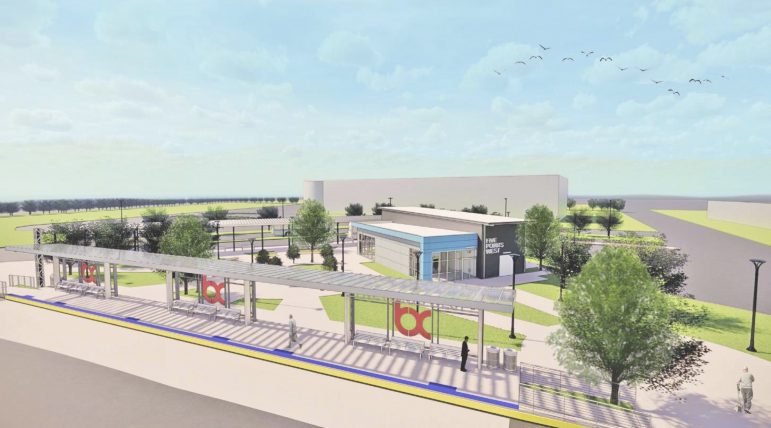The Birmingham City Council voted Tuesday to approve using $18 million in American Rescue Plan funds to cover unexpected extra costs in construction of the city’s Bus Rapid Transit System.
The BRT project, which will create a 10-mile, higher-speed public transit corridor through 25 neighborhoods, broke ground in December. But last week, Charlotte Shaw, the city’s deputy director of capital projects, told councilors that the project had run into rising costs in the construction industry — a “perfect storm” resulting from COVID-19’s strain on the market. Even with significant cuts, she said, the city would need at least $14 million more to complete the BRT, which originally had been budgeted for $45.8 million.
Councilors, arguing that it was important to fund the project “in its entirety,” pledged last week to contribute $18 million from the city’s general fund balance, which in turn would be replenished by funding from the American Rescue Plan.
But by the time an official vote was called for on Tuesday, the situation had changed. Chaz Mitchell, Mayor Randall Woodfin’s deputy chief of operations, told councilors that federal guidelines prevented ARP dollars from going toward infrastructure projects paid for out of the city’s general or rainy day funds.
Instead, the council voted to designate $42.6 million from the city’s state and local fiscal recovery fund toward “revenue loss recovery,” which would include the extra $18 million needed for the BRT project as well as an additional $24.6 million, which will be the subject of later negotiations between the mayor and council.
“Taking this approach would really allow us to fund the BRT project without violating any of the interim final rules from the Treasury Department,” Mitchell said. “If we did the straight-up project out of the ARP … we’d probably get hit on our hands for doing an infrastructure project, or brick and mortar, which is not allowed under this Treasury ruling.”
The council voted unanimously to approve the additional funding.
“I’m glad we came to this decision,” said District 8 Councilor Steven Hoyt. “I think it’s wonderful … We need to be committed, and I think this commits us to doing something wonderful and something impactful for our residents … I think this is going to change one’s quality of life because these buses can get there and get there on time … I think this is going to be a game-changer. And if we can only build on this and provide the same kinds of services to other parts of the city on this level, it’s going to change the dynamics of this city.”

